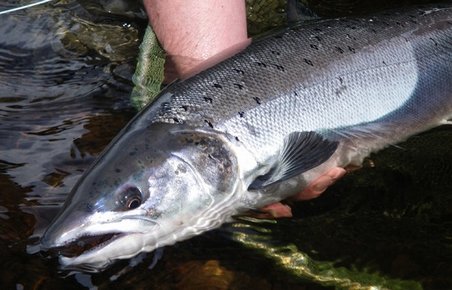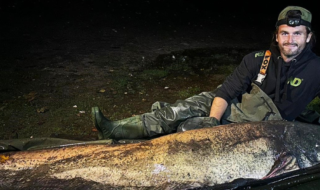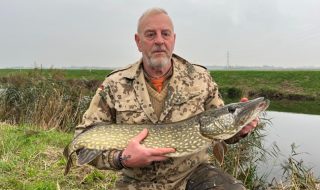The Angling Trust has given a warm welcome to the announcement by Fisheries Minister George Eustice that nearly all netting of salmon in England will cease for at least 5 years with effect from 2019 after a sustained campaign for the past 4 years by the Angling Trust.
The new byelaws will save more than 20,000 fish a year from the nets, allowing them to go on to spawn and contribute to the recovery of salmon populations, many of which have been in decline for several years. The principal benefit will be to rivers in the North East of England and the East coast of Scotland, as the majority of netting takes place there, but many other rivers will benefit from an end to small scale netting as well.
An end to unsustainable netting was a one of three principal aims of the Angling Trust’s Save Our Salmon campaign, which was partly supported by financial contributions from readers of Trout & Salmon magazine. However, the government has as yet failed to tackle pollution from agriculture and to allow fishery managers greater freedom to control predation by cormorants and goosanders, which were the other two principal aims.
The Environment Agency’s Five Point Approach, launched two years ago to restore salmon stocks, has failed to have any significant impact and has suffered from a lack of funding by government and an unwillingness to take regulatory action to reduce the impact of pollution, over-abstraction and barriers to fish migration. The Angling Trust will be campaigning vigorously over the next few years, in partnership with WWF and The Rivers Trust, for concerted action to address the key issues affecting Atlantic salmon populations, which will be of benefit to many other species which depend on healthy river environments.
These include:
- New regulations and a credible threat of their enforcement to tackle pollution from agriculture.
- Greater freedom for fishery managers to control populations of goosanders and cormorants.
- Introducing regulations to require the owners of barriers to fish migration to make them passable, promised 15 years ago.
- Restoration of government funding for Environment Agency fisheries after a 76% cut in the past decade.
- Sustainable funding for rivers trusts and the Catchment Based Approach to restore healthy catchments and salmon habitats.
- Reforming the abstraction regime, promised by the government as long ago as 2011.
- Funding for research into reasons for the plummeting rates of marine survival of salmon.
- Action to implement the findings of the Scottish Government’s recent investigation into the highly damaging salmon farming industry.
The Angling Trust also welcomes the sensible and proportionate arrangements for regulation of anglers’ catches which will be via a voluntary approach requiring 90% of fish to be released on most rivers. The Angling Trust has been alone amongst fisheries organisations in campaigning for a voluntary approach, to avoid the imposition of mandatory 100% release byelaws. Anglers have dramatically increased the proportion of fish they release from close to zero in 1990 to 80% in 2017. The Angling Trust will be giving evidence at an Inquiry early in 2019 to oppose implementation of a proposed Wales-wide mandatory ban on the taking of salmon from 2020.
Mark Lloyd, Chief Executive of the Angling Trust and Fish Legal said: “we are delighted that our long and hard-fought campaign to stop the netting of tens of thousands of fish has been successful, and that most anglers will not be criminalised if they take a salmon home to eat after June 16th. This is a good result for fish and fishing. However, the netting ban alone will not restore stocks to sustainable levels and we need to see government get a grip of the real causes of declining stocks such as widespread pollution, low marine survival, over-abstraction, habitat damage, barriers to migration and predation. We will be working with our member clubs, fisheries and river associations to increase the voluntary contribution that anglers make to the conservation of stocks by releasing fish on rivers which cannot support a sustainable harvest and supporting efforts by river trusts to restore healthy habitats.”






